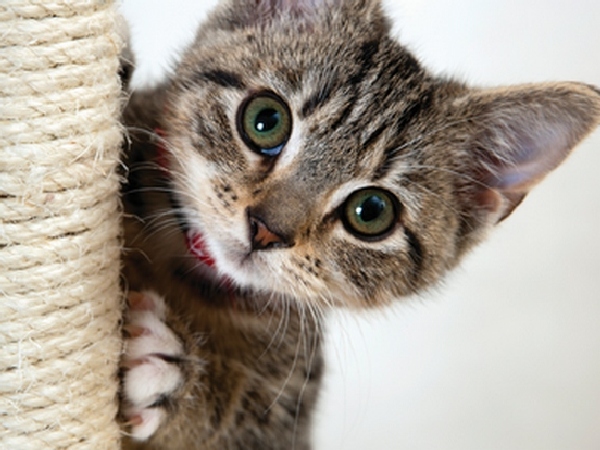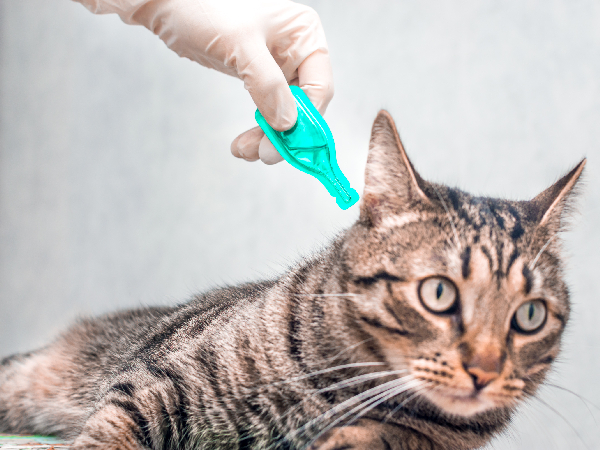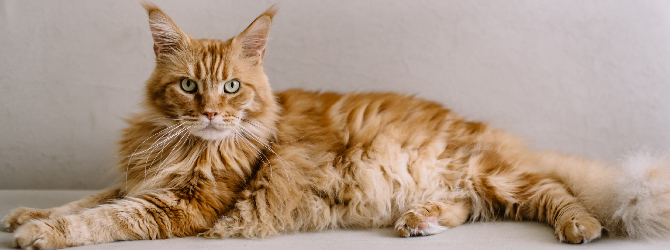Can indoor cats get fleas?
First Published: 11/04/2023
Last Updated: 31/12/2024
Keeping your cat indoors will protect them from cars, other cats and predators. Unfortunately, however, it won't protect them from fleas. Even if your cat never ventures outside, you can't guarantee they won't get fleas, making flea treatment an essential part of your routine healthcare.
Brief summary
- Fleas are can lay 40 to 50 eggs a day
- Fleas can pass on dangerous diseases to your cat
- Indoor cats can get fleas from pets, people, clothes and furniture
- The best way to protect your cat from fleas is with routine flea treatment
What are fleas?
Fleas are hardy, small and hungry, and just because your cat lives inside doesn't mean they can't get infected. Fleas are tiny parasites that latch onto your cat's fur and bite into their skin so they can feed on their blood. The biggest issue with fleas is that they multiply so quickly. A single adult female flea can lay 40 to 50 eggs a day. That's about 2000 in her lifetime.
They cause your cat extreme discomfort, making them itch and scratch and sometimes passing on dangerous diseases like bartonellosis (cat scratch disease) and tapeworm.
Fleas are drawn to hot and damp climates, therefore they will invade your home in winter, especially when the central heating is on.
Do indoor cats need flea treatment?
All cats should have regular flea treatment, and that includes indoor cats. Just because they don't go outside doesn't mean they can't be affected by fleas. Regular flea treatments for indoor cats will keep them safe and give you peace of mind that they're protected from itching, scratching and infestation.
How do indoor cats get fleas?
Indoor cats can catch fleas in many ways, some of which might surprise you.

Read more: Does my cat have fleas?
Other pets
Indoor cats living in a home with other pets, especially dogs, will likely catch fleas at some point. This is because other pets can get fleas while they’re out of the home, bring them back and then the fleas will leap from pet to pet or fall off the dog and end up on the sofa, where your indoor cat will inadvertently get latched onto. It's practically guaranteed that if one pet has fleas, all the pets in the house will get fleas. That's because fleas are experts at leaping from animal to animal, looking for a fresh meal.
The only way to ensure all pets in the house are protected from fleas is to treat them all. This means year-round protection for every pet. In addition to year-round treatment, you'll also need to make sure you give all the pets in the home their flea treatments at the same time. Otherwise, they won't work correctly.
People
Fleas prefer pets but are happy to use people for a free ride and a quick snack. If you've been in a friend's house and their animals have fleas, those fleas are likely to have hitched a ride home on your clothes.
Good housekeeping can help reduce the risk of a flea infestation. Washing clothes, bedding, and hoovering floors, carpets, and sofas will help destroy fleas and flea eggs.
Wildlife
Even if your cat doesn't go outside, that doesn't mean the outside can't come in. Mice and rats carry fleas and make nests in your walls and floors, transmitting their fleas to your home. While many rodents won't want to live in a house with a cat, they may be drawn in by food or warmth. To stop your home from becoming a rodent hotel, ensure all food is stored securely and that any waste is thrown away immediately. Pigeons can also carry fleas; whilst unlikely, they can accidentally get into your home, making an almighty mess and leaving fleas behind. Keep windows shut if you're not in the room, or consider putting a bird feeder away from your house.
If you have a rodent problem, speak to a professional who can advise you about prevention.
Going outside
Even if your cat lives indoors, they'll still visit the outside world for vet appointments or if you need to board them in a cattery while you go away. While both these places try to stay flea-free, it's only sometimes possible. When your cat returns from a trip outside, giving them a good brush can help you spot if they've picked up any fleas. If they have, you'll be able to start treatment straight away.
Second-hand items
During this ongoing cost of living crisis, more and more of us use second-hand shops and apps to buy clothes, furniture and pet accessories. All of which may have come from a flea-infested home. To reduce the risk, ensure all items in your home are washed and disinfected before they're used. This will help destroy any flea eggs before they have a chance to hatch.
Moving home
If you're moving home, whether buying or renting, your cat will have to travel outside, and the home you're moving into may have fleas. Before you take your cat to their new home, clean and disinfect the new home thoroughly. This is important because your cat will likely want to find small, warm, safe places to hide the first few days and weeks after moving in.
How to tell if your cat has fleas
Your cat may have fleas, and you may never see one. You will be able to spot them, however, by watching out for these signs:
- Scratching
- Chewing at their fur
- Biting
- Licking
- Restless behaviour
Cats with an extreme case of fleas may show signs including:
- Hair loss
- Sores on the skin
- Fleas or flea dirt on the fur or skin
- Excessive grooming
- Lethargy due to anaemia
How often do indoor cats need flea treatment?

Read more: How to apply flea treatment to a cat
To prevent your indoor cat from getting fleas, you'll need to treat them every month (or three months, depending on the treatment you are prescribed). If you have more than one pet, you'll have to treat them all simultaneously for it to be effective.
Preventing your indoor cat from getting fleas is easy. Using a routine parasite prevention treatment administered regularly will make sure your cat stays flea-free. You can join a preventative healthcare plan, like Pet Health Club™, that offers vet-prescribed flea treatments designed especially for your indoor cat.
Need more advice?
If you’re worried that your dog has consumed something toxic, always speak to your vet. Find your nearest vet using our Find a Vet page, or speak to a vet online using Online Vets.


